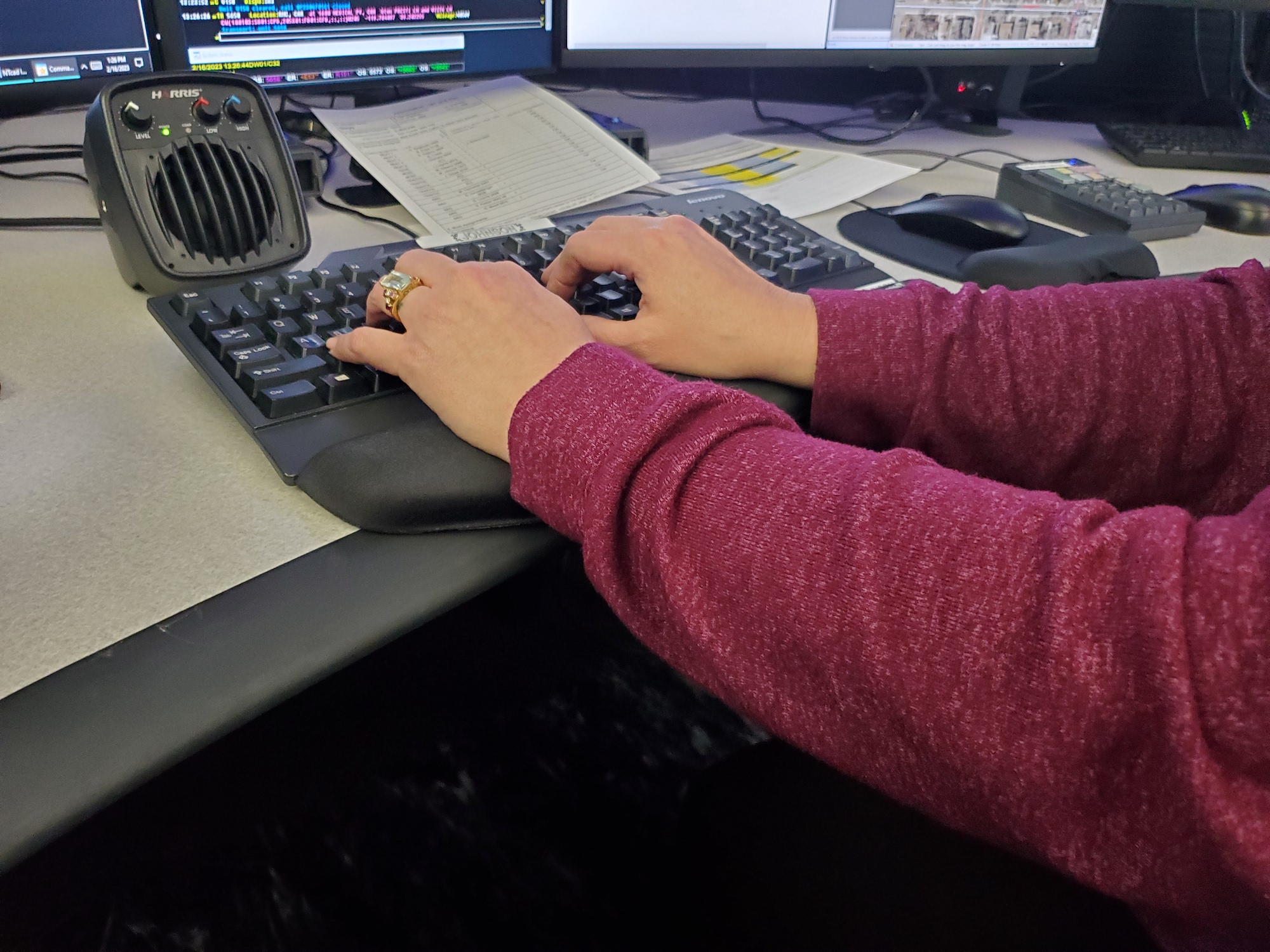First responders have a unique role in that they appear at the site of an emergency to render aid way before anyone else. But in most situations fire, police and even paramedic services aren’t the first to be in contact with potential victims — the 911 dispatchers are. But what happens if the dispatcher and caller speak different languages? This is particularly important in Nevada where 48% of the state’s total population speaks English not very well.
Maricela Ceballos, a dispatcher at the Carson City Sheriff’s Office, is one of the three Spanish speakers on staff. I sat down with her during a steady afternoon at her desk, where she was able to speak with me, thanks in part, because of help from her coworkers. She shared her experience providing bilingual services to the community for almost two decades.
Mariya Dawson: How long have you been a dispatcher?
Maricela Ceballos: It will be 19 years this April 16th.
Dawson: How often are you asked to speak Spanish at work?
Ceballos: Oh, it depends. Sometimes it’s daily, sometimes it’s once a week. It just depends on the circumstances. There was a good chunk [of time] when it was at least daily. Yeah, so it just depends on nature, what’s needed and all that.
Dawson: How did you train for being bilingual in your job?
Ceballos: I didn’t necessarily train; my first language is Spanish. I learned English in school, so when I got this job I was kind of thrown into it. There are some words I’ll have to Google, I don’t know proper Spanish, so there are certain words that I have to look up real quick.
When you’re taking an emergency call, you don’t really have a chance to second guess yourself. It comes naturally, and since it’s my first language, there is something in me that just knows what to try.
Dawson: What are some of the benefits you’ve experienced of being able to speak two languages at work?
Ceballos: It’s another way to help people that may not speak English just feel a lot more comfortable. We have times where people do speak English, but Spanish is their native tongue. They’re just more comfortable and confident speaking it. It has some ability to let them know that I understand them. It goes a little bit further than speaking the language. It’s fulfilling.
Dawson: Even though it comes with benefits, is it hard to recruit dispatchers that speak Spanish?
Ceballos: Yes. I think it’s because of the field it’s in, the training [for dispatch] is difficult.
Dawson: Is that the same with the first responders (fire/police)?
Ceballos: The fire department has very little [bilingual staff], but there are a couple of deputies that speak Spanish. I’ve translated a number of conversations or reports if there’s no patrol [that are bilingual]. So I’m sure it would be more convenient if we had more.
We also have a language line if we have to. I’ve had to use it for Chinese. It’s a last resort, but a resource at least.
Dawson: Are there more men in this office or women?
Ceballos: Women.
Dawson: Why do you think that is?
Ceballos: Multitasking. Men are typically not able to multitask or have that skill. I guess it’s just from experience, doing multiple things at once, or your attention going in directions and keeping track of those things.
Dawson: For people who are looking into dispatch and are bilingual, what advice do you have for them?
Ceballos: Go for it. You can always get in, and I think it’s a great field. I really just fell into it. My sister was working in the state, and she told me [about it]. I didn’t know what to expect, but again you’re connecting with someone on a more different level, even if I don’t speak “proper” Spanish. You’re still trying to communicate. You’re trying, they’re trying. It’s 19 years later and I could not imagine what I would be doing if I wasn’t doing this – and I started when I was 18 years old, in high school.
It’s not easy, and it’s not for everyone, but I think that if it works out, and you finish the training, you’ll be here for a very long time.
